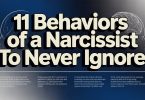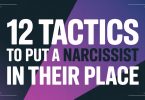Have you ever thought about how someone smart, self-aware, and sensitive could end up with a narcissist? It’s a strange paradox since someone with a lot of life experience or emotional understanding should not be able to be manipulated. As we’ve seen over and over, though, narcissistic abuse can happen to anyone even the smartest people who seem to have everything under control. Why does this take place? How can someone with a deceptive personality get past someone’s mental defenses?
We will talk about the different types of narcissistic abuse in this article. We will look at how narcissists trick and trap people, even those who think they are smart, logical, or mentally stable. You will have a better understanding of the psychological dynamics at play, the weaknesses that narcissists take advantage of, and why intelligence alone is not enough to protect yourself from these kinds of bad relationships.
A typical person may seem like an attractive or even charming person at first glance. They’re usually very good at making themselves look attractive, sure of themselves, and sometimes even caring. This initial appeal is part of the narcissist’s plan to get people to fall for them, even smart ones.
People who are narcissists are very good at reading people and know how to make it look like they care and admire you. They might show you lots of love, care, and praise, making you think they are the perfect partner, friend, or coworker. If you’re smart and value logic and reason, these screens might at first seem safe. They could be taken as real compliments or normal ways to show love. On the inside, though, this behavior is often a planned attempt to take control. Narcissists try to control the person they’re interested in by making them feel special, sometimes in ways that almost seem too good to be true.
How to Love Bomb: The Sweet Trap
The first thing a narcissist will do to get someone to like them is called love bombing. During this stage, the narcissist will show a lot of love, compliments, and claims of a perfect relationship. It seems like the narcissist knows exactly what the other person wants: approval, admiration, and mental satisfaction. Someone very smart might even be aware that this is happening and still find it hard to stop.
Positive attention can be addicting, especially if it fills in mental gaps or makes you feel good about your self-worth. This is where even the smartest people can be taken off guard. They might notice how intense the attention is but think it’s real care. Narcissists are very good at love-bombing people in ways that take advantage of their weaknesses. If someone is emotionally intelligent, the narcissist’s care may make them feel good, but they might not fully understand how they are being manipulated.
It’s not always easy to spot the trap, and as the narcissist continues to feed their target with praise and approval, an emotionally strong bond forms that is very hard to break, even when it becomes clear that they are manipulating them.
Gaslighting: The Quiet Loss of Reality
Narcissists may use gaslighting more than any other trick to get what they want. In this type of psychological abuse, the narcissist denies or changes reality to make the target question what they think they know. Gaslighting works best on smart people because it causes cognitive dissonance, which is when the person’s logical mind starts to clash with the emotional trickery they’re going through.
A narcissist might, for instance, twist words, deny things they’ve said or done, or say the target is making things up. Smart people, who are proud of their ability to think things through and judge them, often start to doubt themselves. They doubt their ability to remember, think, and make decisions. This makes people feel confused and unsafe. In turn, the ego gets more power. Even though the narcissist is the one distorting reality, the target starts to feel like they are losing their grip on it.
Gaslighting can make a person lose trust over time. People are more likely to believe what the narcissist says about what happened when they have questions about their perceptions. This keeps the cycle of control going. These feelings can make even the most sure-of-themselves people doubt their thoughts, which is exactly what the narcissist wants.
Smart people often fall for gaslighting. Someone very smart or perceptive might think they can outsmart others, even narcissists. They may notice tiny inconsistencies or signs of manipulation but may not pay attention to them because they believe they are just being paranoid. They may also think that if something doesn’t seem right, they’ll figure it out by using logic or observing it. They are very sure of their critical skills, which can be both good and bad. But the narcissist is very good at shaping the story and making sure there aren’t any contradictions.
They use a technique called triangulation, in which they present a third party or set up a situation that makes the victim start to compare themselves to others. This technique gives the impression that everyone agrees with you, which makes it even harder for the smart target to believe what they are seeing.
Why Being Smart Isn’t Enough: The Emotional Cost
Narcissistic abuse can hurt even the smartest people because it can change their feelings. Some people feel even worse about themselves after being hurt, which can make the mental damage even worse. The narcissist’s trickery makes them doubt their ability to understand emotions and also makes them feel bad about their worth. As time goes on, narcissist changes their behavior from idealization praying, and flattering to devaluation critiquing, and putting down. This process takes a while but works very well. The victim gets so used to the narcissist’s approval that they feel lost and want it back badly when it goes away. Even the most emotionally intelligent person can get stuck in this loop and not be able to break free from the need for approval.
The Role of Feelings and Idealism
A second reason smart people can fall for narcissistic abuse is that they are caring and idealistic. There is a natural tendency for many smart people, especially those with high emotional intelligence, to believe what other people say. They might see the narcissist’s flaws but think they can fix them with enough love and care. They might not be able to make good decisions when they want to help someone or make a relationship better, and they might see the narcissist’s bad behavior as one-time instead of planned manipulation. They might not be able to see the relationship for what it is because they are too idealistic and positive. Smarter people may think that things can change and that they have a lot of power over others. This is exactly what narcissists look for.
The Worry of Being Seen as Weak or Naïve
Very smart people, especially those who are sure of themselves or rely on themselves, may feel ashamed or embarrassed when they learn a narcissist has abused them. People think that smart people shouldn’t be easily swayed by their emotions, and recognizing that you’re weak or vulnerable can make you feel like you failed. They may stay in the relationship longer than they would have otherwise because they try to make sense of their feelings and stay in charge of the situation.
The Dissonance of Thinking About Leaving
It can be very hard for many people to leave a selfish relationship because it makes them feel bad. When people’s views and actions are at odds with each other, they feel cognitive dissonance, making it very hard to end a relationship like this. Narcissists love to make things unstable and confusing for their victims, which makes it even harder for them to make a clear decision to leave. Because of the emotional link that has been made, the victim feels guilty for wanting to leave, and they are afraid of losing the narcissist’s approval, which makes the cognitive dissonance worse.
Narcissistic abuse can happen to anyone, even the smartest and most socially aware ones. Narcissists are very good at controlling their victim’s emotions and moods by using techniques like love bombing, gaslighting, and emotional control. The mental damage is often hard to see, and victims may not understand how bad the abuse is until they are deeply involved in the relationship. Being aware is the key to getting away from narcissistic abuse, and learning to spot the signs early on is the only way to keep yourself safe from more harm.






Leave a Comment